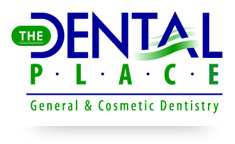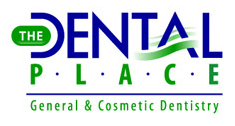Your smile needs to be clean in order to stay safe. Over time, bacterial accumulation in your mouth can start to cause other issues, and staying on top of your oral hygiene can help you to avoid tooth decay and periodontal disease. Plaque and tartar buildup can harm your health, so you want to take steps to keep your smile clean.
This is why it is so important to stick to your schedule of semiannual checkups. If it has been a while since the last time you were in the office, give us a call to set aside time for a cleaning and examination. Our talented dental hygienists can help you to feel fresher with a thorough cleaning of your smile!
Experience a Cleaner, Safer Smile.
The accumulation of plaque and tartar puts your oral health at risk of periodontal disease and tooth decay. Removal of bacterial buildup can help you to avoid these problems and continue to have a beautiful smile. If it is time for your next dental cleaning, talk with your local Grand Prairie, TX dental office at 972-264-5795 today!
Stay On Top Of Your Health With Semiannual Checkups
You know how important your brushing and flossing is to your oral health, and that is why you make sure to stick to your hygiene regimen every day. Even with a dedicated approach, you simply cannot do it all on your own, however, so you need to see your dentist from time to time for a cleaning and an examination. Generally, people need to meet with an oral health professional at least twice each year, but you may need additional visits, depending on your needs. Talk with your dentist about your timeline, and then stick to your schedule.
Bacterial Accumulation Can Harm Your Smile
There may be places that you miss when you floss and brush, and in these locations, bacterial buildup can begin to form. This starts as a biofilm known as plaque, which you may feel in the morning before you have a chance to brush your teeth. If plaque remains along the gumline or on the surface of a tooth, it calcifies into tartar, which is a tougher material; at this point, you need the help of a trained dentist or dental hygienist to safely remove your bacterial accumulation.
Unchecked plaque and tartar buildup can pose a serious risk to your oral health. This problem leads to both tooth decay and periodontal disease, which can hold your smile back. Periodontal disease is routinely identified as the leading cause of adult tooth loss, so it is vital to address plaque and tartar quickly, and dental cleanings play a big role in helping you to keep your smile safe.
Improve Your Smile’s Appearance And Feel Fresher With A Dental Cleaning
When plaque turns to tartar, it can affect the feeling and taste that you experience every day. Tartar has a bad odor, and others may start to notice that your oral health has been slipping due to halitosis. Bacterial buildup can also leave you with a constant unpleasant taste in your mouth that simply will not go away.
With your dental cleaning, you can remove the plaque and tartar that have kept you from feeling your best. Tartar buildup can also be visible to others, showing up as yellow or brown spots on your teeth, and scaling and root planing can help you to improve the appearance of your smile.
Talk To Our Grand Prairie Dental Team About A Cleaner Smile
You deserve a beautiful and healthy smile, and that starts with dedication to your visits to the dentist. If it has been some time since your last appointment, speak with a member of our team and set aside some time for a dental cleaning. Give us a call at our Grand Prairie, TX office today at 972-264-5795 today!

